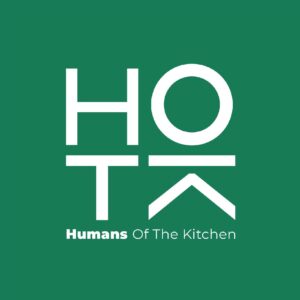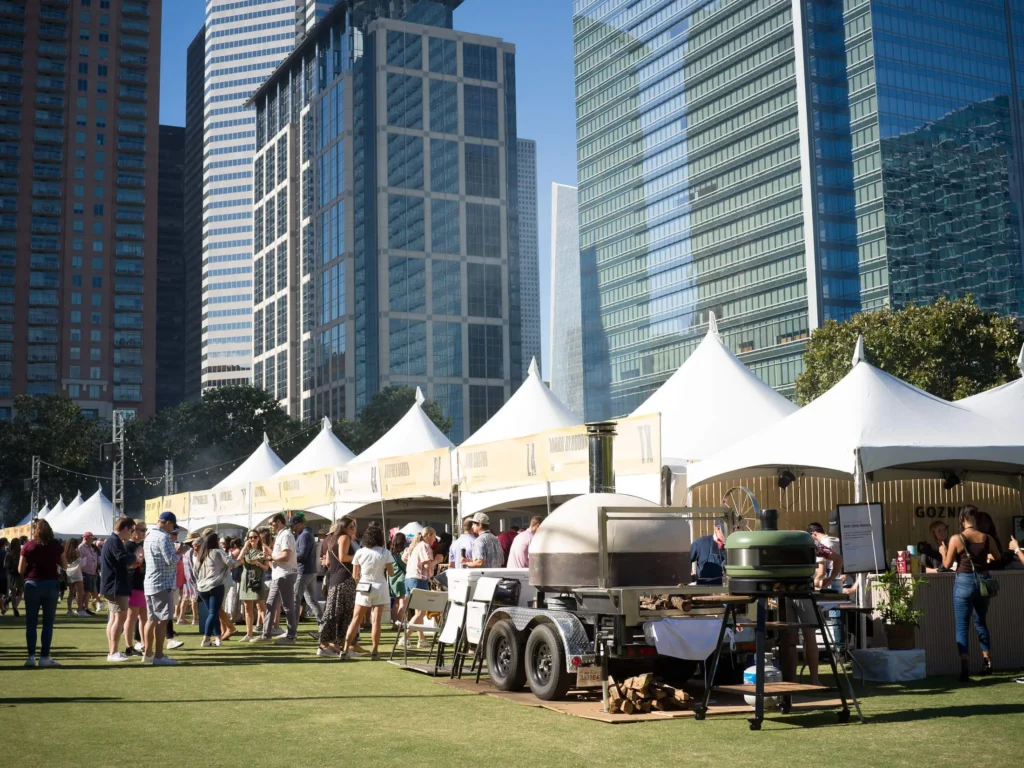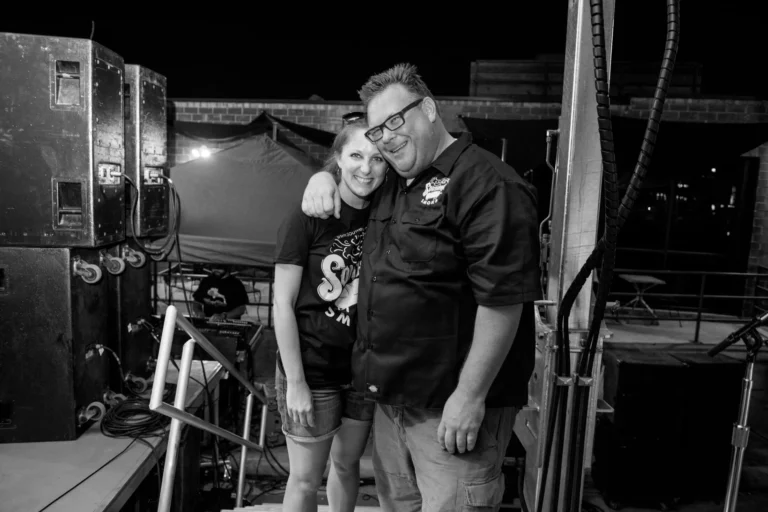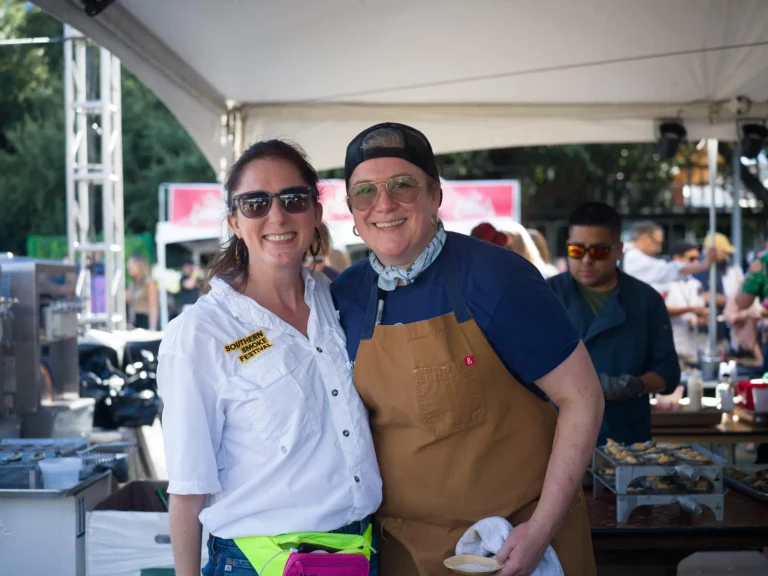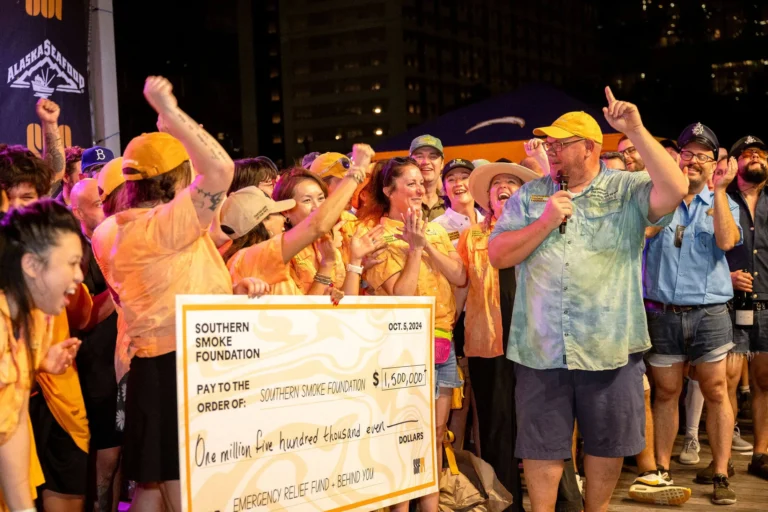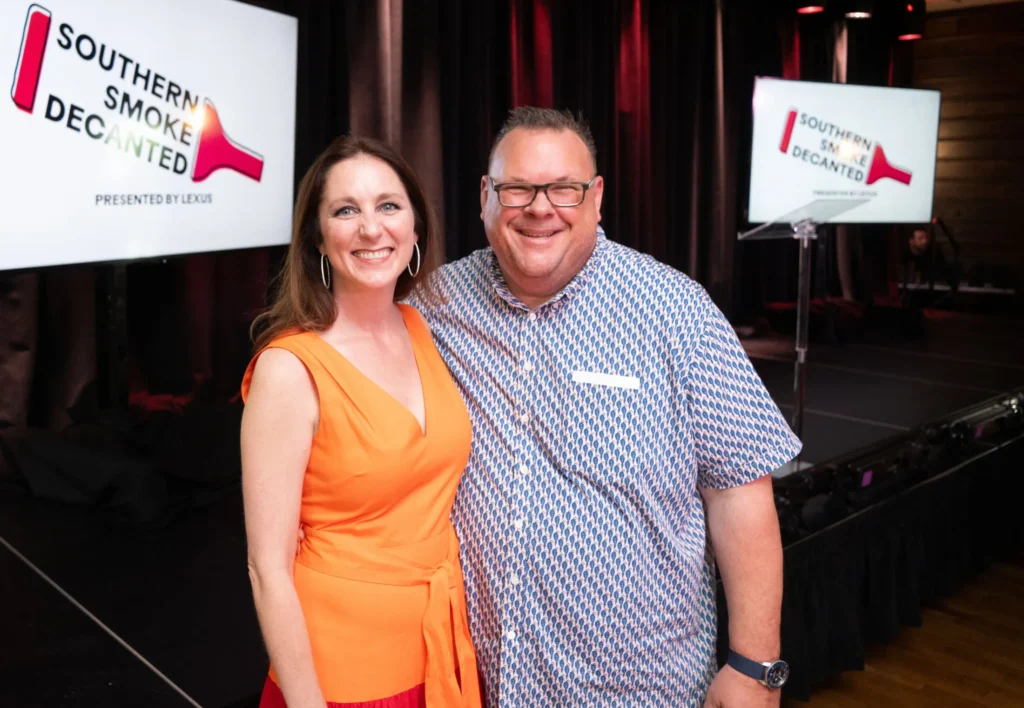
A Smoke Signal That Ignited a Movement
How Lindsey Brown Helped Build a Safety Net for the Industry Through Southern Smoke
There are people who run into the fire.
Lindsey Brown is one of them.
As the Executive Director of the Southern Smoke Foundation, she didn’t come from the kitchen — but she arrived with open eyes, a deep understanding of crisis communication, and a heart tuned to the people who keep restaurants alive. She met her husband, a chef, while working in hospitality PR. Then a call came from a friend — a sommelier recently diagnosed with MS — asking for help. That moment sparked what is now one of the most impactful relief organizations in the food and beverage world.
” There is no safety net for the F+B industry — so we’re building one”
Before the pandemic, less than 15% of restaurant workers had healthcare coverage. Many live shift to shift, balancing rent, groceries, and medical bills with little room to breathe. Southern Smoke stepped in where no one else would — covering essential costs, providing emergency relief, and offering access to no-cost mental health care across 11 states and Washington, D.C. through a university affiliate network.
Their work is anonymous, compassionate, and immediate. Whether you’re facing eviction, addiction, grief, or the aftermath of a natural disaster, Southern Smoke is showing up — not just for individuals, but for families. Over 55% of their grant recipients are parents of at least one minor, and many are single caregivers receiving no child or marital support.
Quickfire with Lindsey Brown
Tell us your background and how you first got into the restaurant industry.
I worked for the Greater Houston Convention and Visitors Bureau promoting the city for a living. I realized that the culinary scene was a major driver in the Houston economy, so I left my job at the GHCVB to pursue a career in restaurant PR. This led me to my husband, who was a chef.
Were there any specific challenges or stories that motivated or inspired you to become an advocate of change in the restaurant industry?
We were raising money for culinary scholarships when a friend of ours, who was our guest sommelier at those dinners, came to us and asked if we would do a fundraiser for the MS Society. We asked why, and he said he was diagnosed that week. A prominent chef in Houston died by suicide about four months earlier because he had MS and could no longer hold a knife, so our friend Antonio wanted to raise awareness. So, Southern Smoke was born as an annual festival to raise funds for the MS Society. Two years later, we changed our focus to support F+B workers in crisis following Hurricane Harvey.
Which are the biggest problems your organization works to change?
There is no safety net for the F+B industry, especially during natural disasters. Natural disasters are becoming more and more common, so we’re working on a solution to provide a meaningful and sustainable response to all of these natural disasters, while continuing to support personal crises as well.
What are some of the challenges you faced when starting your organization?
We’re providing crisis relief and access to mental health counseling, so many times we are working with our applicants at some of the lowest points of their lives. We needed to build trust with our applicants, which is why our process is completely anonymous. We will only tell someone’s story if we have permission. We also work hard to have a thorough and efficient application process that’s not too cumbersome for the applicant but also respectful of our donor dollars.
Which sources of funding helped you launch and sustain the organization? Was there something that helped you find them and believe in your idea?
We started with a festival, and it remains our largest annual fundraiser. We launched a wine auction last year, and we believe it has the potential to out-fundraise the festival in a few years. We also have wonderful supporters—individual, corporate, and industry.
What other pressing issues do you identify in the restaurant industry beyond the one your organization is addressing?
If more restaurant workers had access to health insurance and childcare, they would need less funding from orgs like ours.
What’s your vision for the restaurant industry’s future, especially regarding human sustainable practices?
By putting their staff first. If the staff is taken care of, the customers will feel it in the space and taste it in the food. It’s a win/win.
How can small, independent restaurants create a more sustainable and humane environment for their staff and customers?
See above.
How do you believe they can both positively and negatively influence the sector?
Since the pandemic, the media has written a lot about the problems in the industry but very little about organizations and people who are finding solutions. We have states like California, Tennessee, and Massachusetts where we always have spaces available for mental health counseling, but due to lack of awareness, we’re not able to fill them. We’ve had the most challenging time getting the media to cover the fact that this resource is available, and we can’t understand why. It’s a solution to a major industry problem, but we’ve had very little coverage on our program.
How do you view restaurant accolades and awards? In what ways do they affect the industry, both for individual establishments and the broader restaurant community?
I think anything that brings revenue to restaurants can be a positive thing, as long as everyone keeps perspective that it’s not the end-all be-all.
What are some long-term impacts you hope to have in the restaurant industry?
We want to make it a little easier to work in this industry. We want people who choose to serve others for a living to have someone to take care of them, too.
What advice would you give to others who are looking to start a non-profit or initiative to help the restaurant industry?
You have to really love it! Running a nonprofit is not easy. From the accounting to the fundraising to the actual program work… it’s so fulfilling, but it’s not easy!
Nominate another restaurant that deserves to be interviewed. You can put the name or the Instagram handle.
Cafe Momentum
Visit Southern Smoke Foundation for more information about this program.
Follow along @southernsmokefoundation for updates and inspiration.


